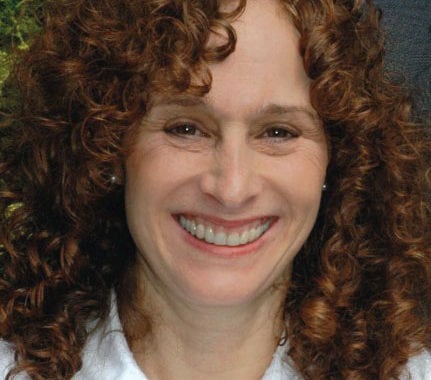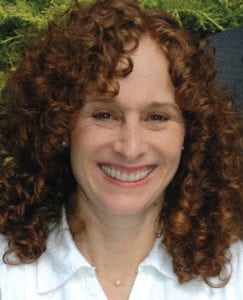By Rabbi Beth Jacowitz Chottiner
Rabbi Simcha Bunim, a great Polish Hasidic master, taught the following: Every person should have two pockets with a note in each. When one is feeling disheartened or discouraged, she should reach into her pocket and read the note that says: “For me alone the world was created.” And when one is feeling arrogant and too full of himself, he should reach into his other pocket and read “I am but dust and ashes.”
Not only do I love this teaching for its wisdom, I appreciate that it asks us to hold two contradictory beliefs at the same time, as our tradition often does. For example, we are taught that G-d has the attributes of both din and rachamim – judgment and compassion. And in Pirkei Avot, we learn, “Everything is foreseen, yet free will is given.”
As Jews, we are not strangers to finding a way to hold two conflicting concepts at the same time. A modern-day contradiction, for many of us, centers around Israel. While many of us who love Israel and believe the Jewish people deserve a homeland, we are at odds with the current government. This is a disturbing reality that we must face.
On top of the stress of the war between Israel and Hamas, we are surrounded by other forms of uncertainty and discord. Threats to our freedom include, but are not limited to, banned books, laws blocking reproductive rights, sustained racism and attacks on the LGBTQ+ community, a divided nation where many sever ties with those who do not share their views, our democracy hanging in the balance, and increased antisemitic attacks, globally.
If we have days when we want to stay in bed, pull the covers over our heads, and take a break from the world, it’s understandable. Life is challenging these days.
Yet, despite the despair we may feel, we must continue to move forward, to do that which enables us to make positive contributions to our community, and keep hope alive.
References to hope, tikvah, are found over 3,000 times in the Hebrew Bible and Rabbinic literature. In Psalms, we read: “Have hope in Adonai; be strong and of good courage! Have hope in Adonai!” And in the Jerusalem Talmud, we read, “As long as a human is alive, he has hope.”
Judaism is a religion of action. We are called upon to act, to do, to hope, even when we are surrounded by fears, anxiety, and uncertainty.
Eli Wiesel, z’’l, Holocaust survivor and Nobel Peace Prize recipient, was a living testament to the power of hope. He worked tirelessly to make the world better than it was when he suffered through the Holocaust. When asked in an interview how, he clung to hope despite his disappointments and bouts of pessimism, Wiesel replied, “One must wager on the future. I believe it is possible, in spite of everything, to believe in friendship in a world without friendship, and even to believe in God in a world where there has been an eclipse of God’s face. Above all, we must not give in to cynicism. To save the life of a single child, no effort is too much. To make a tired old man smile is to perform an essential task. To defeat injustice and misfortune, if only for an instant, for a single victim, is to invent a new reason to hope.”
Another Jewish giant, the late Rabbi Lord Jonathan Sacks, chief rabbi of the United Kingdom, also spoke of hope. He asserted that hope is the gift of Judaism to the world. He wrote, “People often confuse optimism and hope. They sound similar. But in fact, they’re very different. Optimism is the belief that things are going to get better. Hope is the belief that if we work hard enough together, we can make things better.” He also said, “Hope is what transforms the human situation.”
Despite our despair, now is the time for each of us to act, to make up our minds to do more than we have already done to improve the myriad problems we all are facing. I know we cannot solve all of society’s ills, but we must do what we can. As Rabbi Tarfon taught, “It is not upon you to complete the work, but neither are you free to desist from it.”
Action leads to hope. Action is hope.
In the words of Rabbi Dr. Abraham Twerski, z’’l, “Under no circumstances do we ever give up hope; as difficult as things can get, hope is the polar opposite of despair.”
As we begin our New Year together, let us remember that Judaism has always placed more emphasis on actions than on beliefs. Let us follow our tradition by acting, thereby infusing hope for a better tomorrow.
Beth Jacowitz Chottiner is Rabbi of Temple Shalom.




